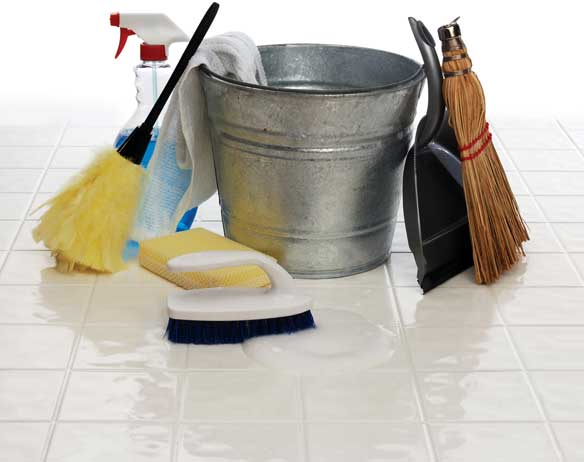Cleaning in Bristol can be rewarding, fulfilling work; it provides the opportunity to exercise one’s body (a major benefit over traditional desk jobs), and gives the cleaner a daily sense of satisfaction, as the signs of a job well done are clearly visible.
The very things that make cleaning in Bristol an enjoyable career can, however, be a source of risk if not properly managed. The handling of chemicals—both conventional and green—may pose a health hazard, and repetitive motions can lead to physical injury.
Safely Handling Chemicals
Chemical accidents happen frequently in many countries as part of custodial work; the U.S. Department of Labour, for instance, lists cleaning and custodial work among the most dangerous jobs in the nation owing to the amount of chemical accidents which happen in the United States. To ensure that cleaning in Bristol is a much safer endeavour than cleaning in America, cleaning professionals should develop a comprehensive Cleaning Chemical Safety Program, once which includes the following features:
A full and detailed list of all cleaning chemicals used in the facility, including the precise amounts of cleaners stored, the locations they are stored, the possible dangers associated with each chemical, and the precautions a cleaner should take when using each chemical. Each chemical used or stored should also have a complete Safety Data Sheet (also known as a Material Safety Data Sheet).
Never mix chemicals for any reason, even if you think they are the “same” type of chemical.
Always keep chemicals stored in their original containers.
Store chemicals only in well-ventilated areas away from major air vents (as these can spread fumes throughout a building quickly).
Safety information should be primarily visual in nature, making use of pictures that clearly depict possible dangers. This prevents accidents among those with learning disabilities and those who do not speak English as a first language.
Dispose of chemicals which have not been used for long periods of time (i.e. a year or more).

Knowing the Signs of Repetitive Strain Injury
Second to chemical accidents, most injuries cleaners encounter on the job are physical in nature, and come about as a result of repetitive motions, such as bending, scrubbing, wiping, etc. These injuries tend to “build up” over long periods of time, rather than coming out of the blue, and take just as long to heal—putting a cleaner out of service for extended periods of time. It is, of course, best to know the warning signs of these kind of injuries, and take rest and correct one’s technique before the injury gets to an advanced stage. Always be mindful of:
Pain. Never simply ignore pain and “tough it out”; pain is your body’s way of telling you damage is being done.
Numbness and tingling sensations. These often signify trauma to a nerve that should never be ignored or passed off for anything else.
Feelings of weakness and a decreased range of motion in one or more limbs or joints.
Frequent loss of circulation in one’s extremities (be on the lookout for feelings of coldness and skin colour changes).
